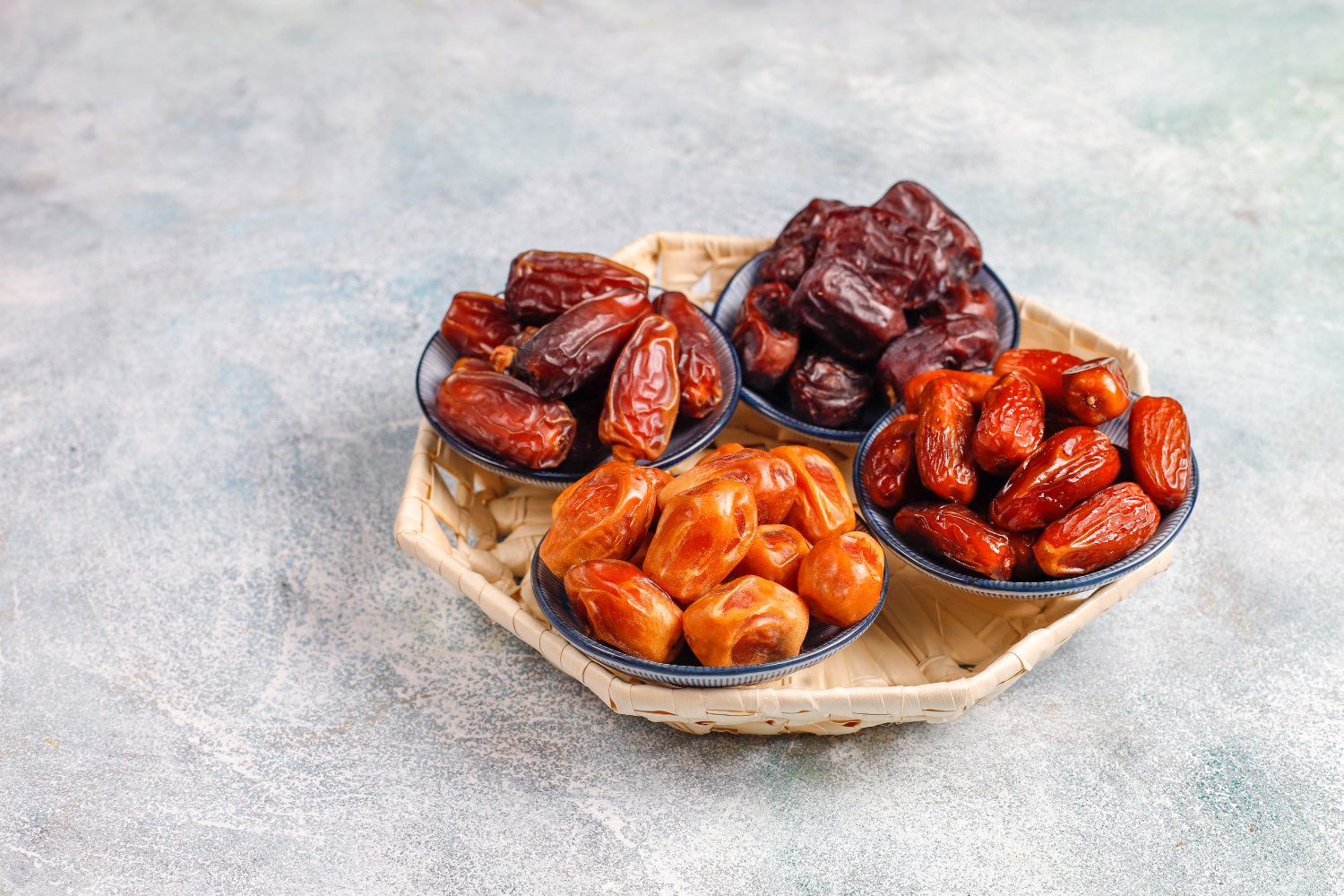Dates are one of nature’s most delicious and nutritious gifts. Packed with essential vitamins, minerals, and natural sugars, these small fruits are a powerhouse of energy and health benefits. But did you know that the way you eat dates can impact the benefits you reap? Let’s explore the best ways to consume dates and maximize their health potential.
Why You Should Include Dates in Your Diet
Dates are often referred to as a “superfood,” and for good reason. They’re rich in:
- Fiber: Supports digestion and prevents constipation.
- Iron: Improves hemoglobin levels and combats anemia.
- Potassium: Regulates blood pressure and supports heart health.
- Natural Sugars: Provides a quick energy boost without harmful additives.
- Antioxidants: Protects against inflammation and chronic diseases.
Including dates in your diet is a step toward better health, but it’s important to consume them correctly.
The Best Time to Eat Dates
- Morning Energy Booster
- Start your day with 2–3 dates on an empty stomach. They’re a great alternative to sugary breakfast options and provide a sustained energy release.
- Pre-Workout Snack
- Eat dates 30–40 minutes before a workout. They offer a quick energy boost without weighing you down.
- Post-Meal Digestive Aid
- Consuming dates after meals helps in better digestion and reduces bloating.
How to Prepare Dates for Maximum Benefits
- Soak in Water (Optional)
- Soaking dry dates overnight softens them, making them easier to digest. This is especially helpful for people with weaker digestion.
- Combine with Nuts
- Pairing dates with almonds, walnuts, or cashews adds healthy fats and proteins, making them a wholesome snack.
- Avoid Overeating
- Stick to 4–6 dates per day. Overconsumption can lead to excess calorie intake or a sugar spike.
Right Combinations and Pairings
- Milk and Dates: Warm milk with dates is excellent for bone health and better sleep.
- Smoothies: Blend dates with bananas, yogurt, or spinach for a nutrient-rich smoothie.
- Salads: Chop dates and sprinkle them over fruit or green salads for natural sweetness.
Mistakes to Avoid When Eating Dates
- Eating Too Many at Once
- While dates are healthy, they’re calorie-dense. Overeating can lead to weight gain.
- Ignoring Quality
- Always choose organic dates to avoid pesticides and chemicals.
- Eating Only Dates
- Don’t rely solely on dates for nutrition. Combine them with a balanced diet for the best results.
Health Benefits of Dates
- Improves Digestion: High fiber content ensures a healthy gut.
- Boosts Energy: Natural sugars like fructose and glucose keep you active.
- Strengthens Bones: Dates are a good source of calcium and magnesium.
- Supports Heart Health: Potassium and antioxidants reduce the risk of heart diseases.
- Promotes Skin Glow: Vitamin C and D in dates improve skin elasticity.
Frequently Asked Questions (FAQs)
1. How Many Dates Should I Eat Per Day?
Stick to 4–6 dates per day to enjoy their benefits without overloading on calories.
2. Can Diabetics Eat Dates?
Yes, but in moderation. Dates have a low glycemic index but are still a source of natural sugar.
3. Are Dates Good for Weight Loss?
Yes, when consumed in moderation. They curb sugar cravings and provide energy for workouts.
Conclusion
Dates are a delicious, versatile, and nutrient-rich addition to any diet. Whether eaten as a snack, in smoothies, or paired with milk, they offer numerous health benefits when consumed the right way. Remember to enjoy them in moderation and explore various combinations to keep your diet exciting and wholesome.
